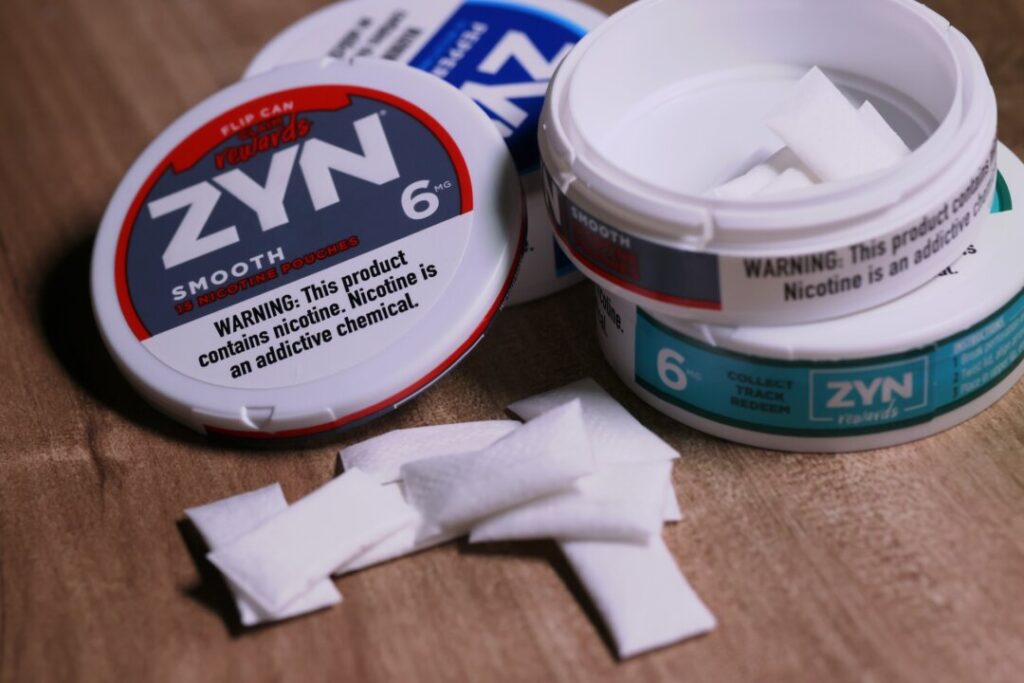
NEW YORK, NEW YORK - JANUARY 29: In this photo illustration, ZYN nicotine cases and pouches are seen on a table on January 29, 2024 in New York City. Sen. Chuck Schumer (D-NY) is calling for federal action on ZYN, a popular nicotine pouch in the United States. The senator is asking the FTC and FDA to investigate the companies marketing and the health effects of the nicotine pouch. (Photo Illustration by Michael M. Santiago/Getty Images)
Reports from poison control centers across the United States indicate a significant rise in accidental nicotine poisoning cases among young children. A study published in the journal Pediatrics on July 14, 2023, highlights a staggering 760 percent increase in calls related to children under the age of six who ingested nicotine pouches between 2020 and 2023.
The research underscores that while nicotine pouches represented only 1.4 percent of all nicotine ingestion cases, they were disproportionately linked to severe medical outcomes. The study revealed that children who consumed these pouches were five times more likely to experience serious health issues and twice as likely to require medical admission compared to those who ingested other nicotine products.
Growing Concern Over Nicotine Pouch Safety
As the popularity of nicotine pouches has surged, so has the risk associated with them. These products, often marketed as a safer alternative to traditional tobacco products, have become increasingly accessible. The study’s findings raise critical questions about the safety measures surrounding these items, especially in households with children.
Researchers emphasized the need for heightened awareness among parents and caregivers regarding the dangers of nicotine exposure in young children. The symptoms of nicotine poisoning can manifest rapidly and may include nausea, vomiting, increased heart rate, and in severe cases, seizures or respiratory failure.
Public Health Implications
The increase in nicotine poisoning cases aligns with broader public health trends concerning tobacco use and its evolving forms. As nicotine delivery systems diversify, regulatory bodies are faced with the challenge of ensuring consumer safety while addressing the growing market for such products.
Health experts urge manufacturers to adopt more stringent packaging requirements and to provide clear warnings about the potential risks associated with nicotine pouches. Additionally, there is a call for educational campaigns aimed at informing the public about the risks of accidental ingestion, particularly among vulnerable populations.
The findings from this study serve as a critical reminder of the importance of vigilance in protecting children from the dangers of nicotine products. As the landscape of nicotine consumption continues to change, ongoing research and awareness will be essential in mitigating these risks and safeguarding public health.






